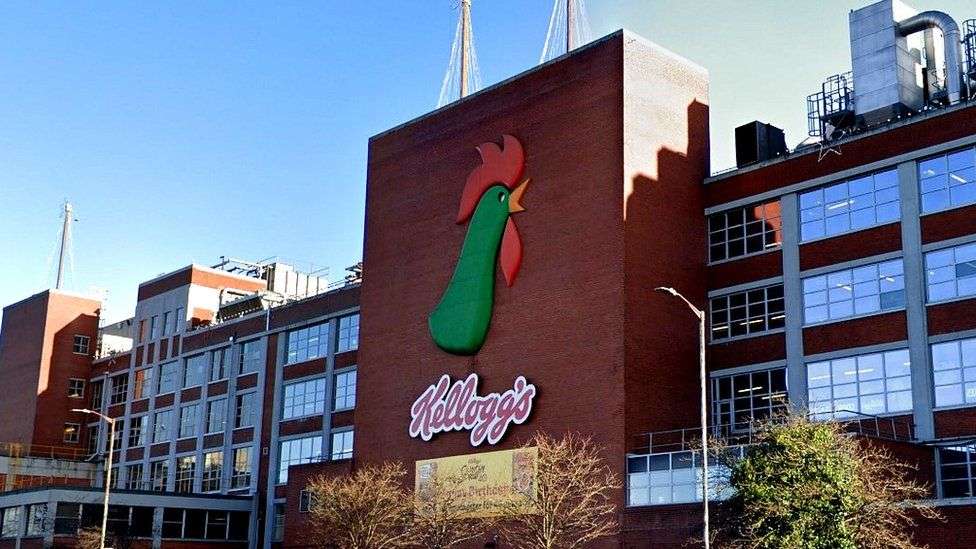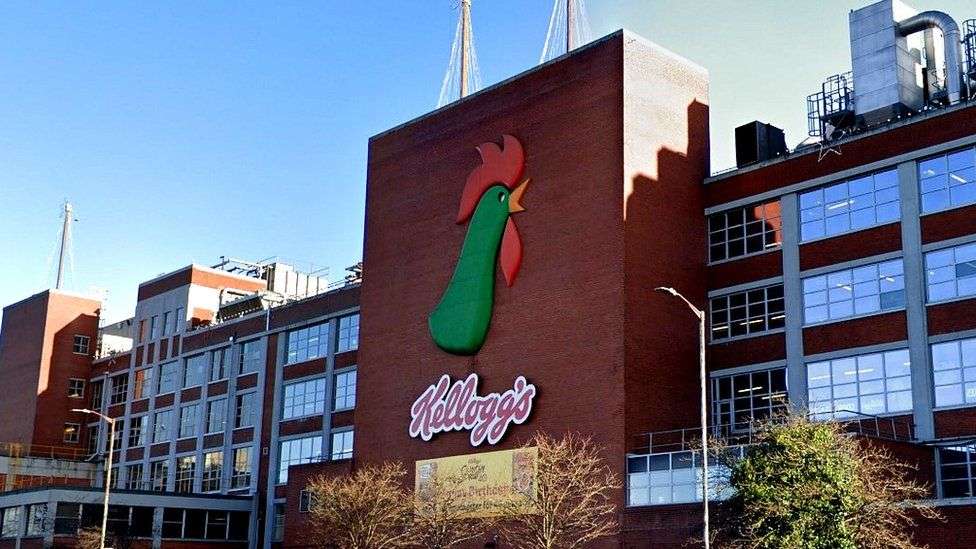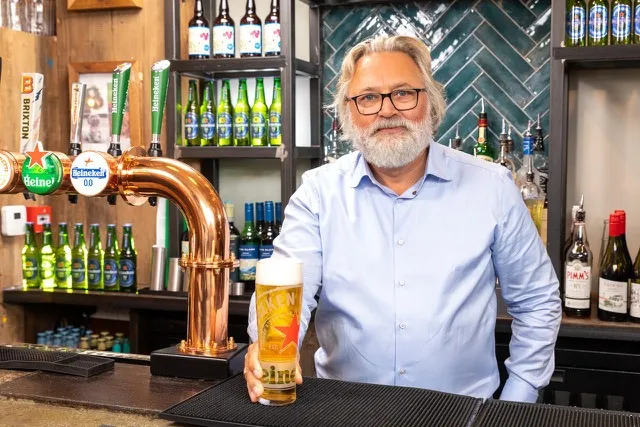Kellogg’s to Close 90-Year-Old Trafford Park Factory, Resulting in 360 Job Losses
Kellogg’s has announced the closure of its iconic factory in Trafford Park, Greater Manchester, at the end of 2026, leading to the loss of approximately 360 jobs. This decision follows three months of discussions between Kellanova, the company that manages Kellogg’s, and representatives from the union and employees.
The End of an Era
The Trafford Park factory, which has been operational for 90 years, is set to close its doors permanently due to its outdated infrastructure and underutilized space. Despite producing around one million boxes of popular cereals such as Corn Flakes, Rice Krispies, and Coco Pops daily, the plant’s layout and facilities are no longer viable for modern manufacturing needs.
Kellanova first hinted at the potential closure in February, citing the factory’s age and inefficiencies. Chris Silcock, the UK managing director, emphasized that the decision was not a reflection of the workforce’s performance. “The closure has nothing to do with the outstanding people who work there,” he stated. “However, we remain clear there isn’t a long-term future for the site. It’s laid out in a way that made sense in the 1930s, with food travelling up and down six floors in a legacy manufacturing process. What’s more, we only use half the space in the buildings, and the investment required to maintain the factory in the coming years is simply not viable.”
Negotiations and Agreements
Following the initial announcement, Kellanova entered a three-month consultation period with union and employee representatives. These discussions concluded with a formal agreement that includes enhanced redundancy packages and redeployment opportunities for the affected staff where possible.
In a joint statement with UNITE and The Union of Shop, Distributive and Allied Workers, Kellanova acknowledged the contributions of its employees and outlined the support measures in place for their transition post-closure. “Through collective consultation, the company and employee representatives have agreed on a substantial package which recognizes our employees’ contribution and supports them to transition to life beyond Kellanova,” the statement read.
Future Plans for the Site
Kellanova has indicated that it will soon begin exploring options for the future of the Trafford Park site. The company is committed to keeping Kellogg’s production volumes within the UK, ensuring that the closure does not impact the availability of its products in the market.
Impact on the Local Community
The closure of the Trafford Park factory marks the end of an era for one of the largest food manufacturing facilities in Europe. The plant has been a significant employer in Greater Manchester, and its closure will have a profound impact on the local community. The loss of 360 jobs is a significant blow, and the enhanced redundancy packages and redeployment efforts are critical in mitigating this impact.
Kellanova’s decision to maintain its production volumes in the UK, while exploring the future of the Trafford Park site, reflects its commitment to its employees and the broader community. The company’s Wrexham factories and headquarters in Salford’s MediaCity, which together employ around 1,000 people, will remain unaffected by this closure.
Historical Significance
The Trafford Park factory has a rich history, having been a cornerstone of Kellogg’s operations in the UK for nearly a century. The site was once one of the largest food manufacturing facilities in Europe, playing a crucial role in the production of Kellogg’s iconic cereals. Over the years, the factory has witnessed significant changes in the food industry and has adapted to various technological advancements. However, the outdated layout and infrastructure have ultimately led to its closure.
Looking Ahead
As Kellanova moves forward, the company will focus on optimizing its other UK facilities to ensure continued efficiency and productivity. The Wrexham factories and the headquarters in Salford will play a pivotal role in maintaining Kellogg’s presence in the UK market. Additionally, Kellanova will explore innovative manufacturing solutions to meet the evolving demands of the food industry.
Chris Silcock emphasized the company’s dedication to its workforce and customers. “We are committed to supporting our employees through this transition and ensuring that Kellogg’s continues to provide high-quality products to our customers. The closure of Trafford Park is a difficult but necessary decision to secure the long-term future of our operations in the UK.”
Conclusion
The closure of Kellogg’s Trafford Park factory marks a significant moment in the company’s history. While the decision is driven by the need to modernize and optimize manufacturing processes, it brings an end to a facility that has been an integral part of the Greater Manchester community for 90 years. Kellanova’s commitment to providing enhanced redundancy packages and redeployment opportunities reflects its dedication to supporting its employees through this challenging transition.
As the company looks to the future, maintaining production volumes in the UK and exploring new opportunities for the Trafford Park site will be crucial. The continued operation of the Wrexham factories and Salford headquarters ensures that Kellogg’s remains a key player in the UK food industry, committed to delivering quality products and supporting its workforce.
Read: Kellogg’s Boycott




